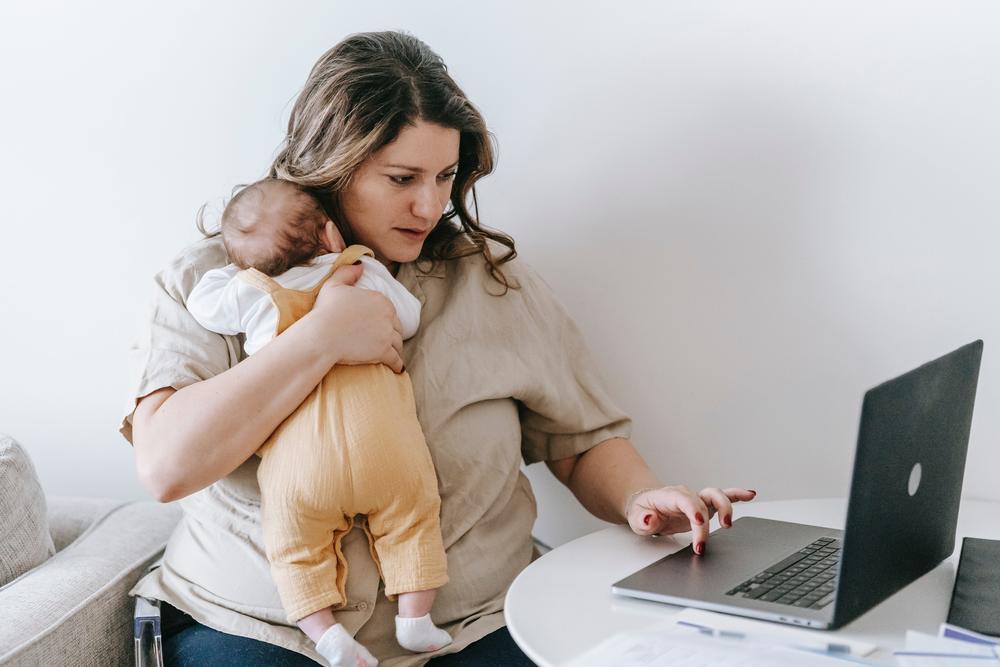
Caption
A new study shows families with state-funded paid leave have an easier time navigating the stresses of being new parents.
Credit: Photo by Sarah Chai from Pexels
LISTEN: State laws mandating paid family leave can keep children safe. That’s according to a new study from the Georgia Institute of Technology. GPB’s Ellen Eldridge has more.

A new study shows families with state-funded paid leave have an easier time navigating the stresses of being new parents.
Families in states requiring it have an easier time navigating the stresses of being new parents, said Georgia Tech School of Public Policy researcher Lindsey Rose Bullinger who led a study on paid family leave and child abuse rates.
"One of the ways that we can lower the rate of abuse and neglect among infants is to have more time for parents to bond with their children and learn their baby," she said.
At this point, about a dozen states have some sort of legislation concerning a paid family leave program in their state, Bullinger said, but her paper looked at states that had these programs before 2019, which were California, New Jersey, Rhode Island and New York.
Researchers analyzed national child abuse data and found that home removals due to unsafe conditions dropped 46% in these states with paid family leave policies.
"We also saw a reduction in substantiated referrals," Bullinger said, "which just means that the cases that were referred to child protective services agencies went through an investigation and there was enough evidence to deem them to be abuse and neglect according to the state statutes."
As of July 1, 2024, in Georgia, educators and state government employees benefit from six weeks of paid parental leave for the birth of a child or the placement of a minor child for adoption or foster care.
This law doubled the previous leave from three to six weeks and extended eligibility to charter school employees.
Georgia Health Initiative is a non-partisan, private foundation advancing innovative ideas to help improve the health of Georgians. Learn more at georgiahealthinitiative.org